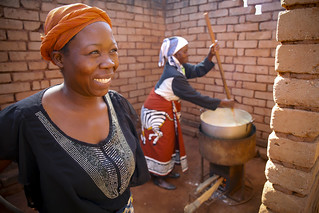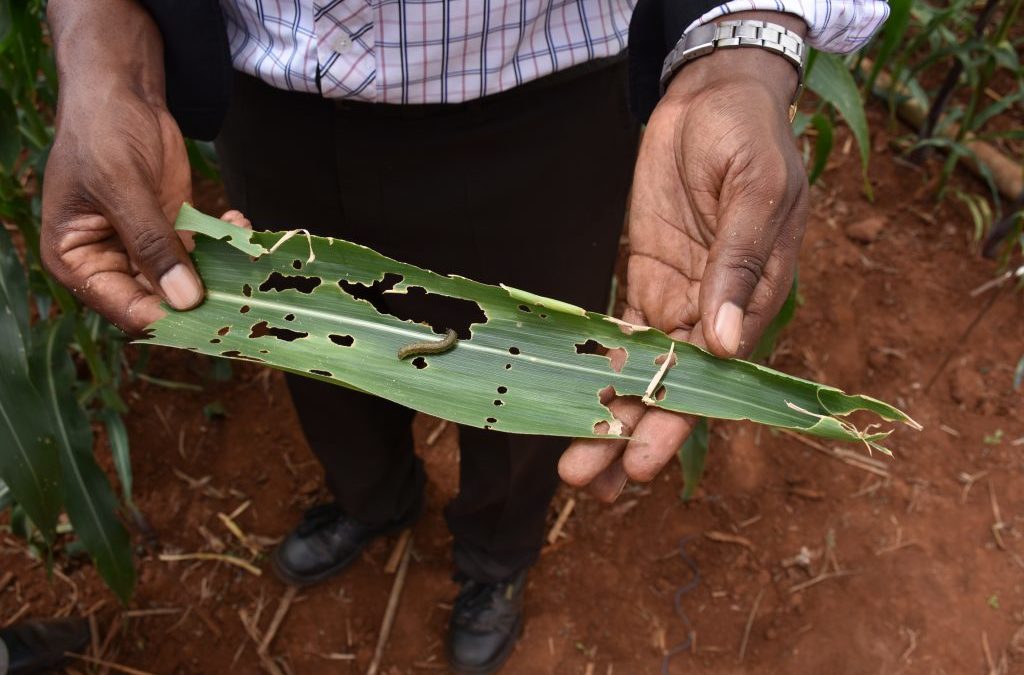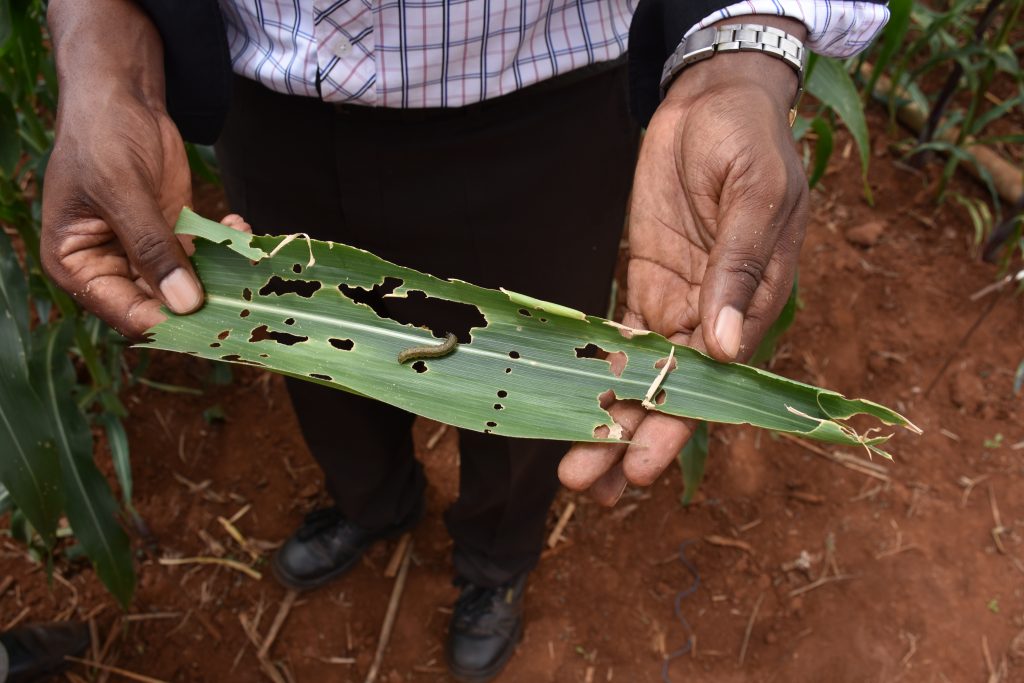Video extension to halt Fall Army Worm must include women
Video-mediated extension is a useful tool to prompt learning and dialogue among communities, with women presenters shown to provide a role model for other women.
This blog is an effort of the Data-Driven Agronomy Community of Practice to highlight CGIAR’s digital extension work.
When it invaded Ethiopia in 2017, the Fall Army Worm ate its way across the country, devouring more than a quarter of maize planted in seven months alone. The insects breed rapidly, migrating and feeding on a range of plants, making them tough to control.
The scramble to halt the Fall Army Worm march across the country included pulling together an arsenal of weapons. In 2018, the Government of Ethiopia set up an advisory committee bringing together researchers, donors and ministries to tackle the problem.
Among them, the Feed the Future Developing Local Extension Capacity project, led by Digital Green in partnership with the International Food Policy Research Institute (IFPRI), Care International, and the Global Forum for Rural Advisory Services (GFRAS), set out to improve and support extension programs, policies and advisory services.
Using video to bring the message home
One of the tools used to halt the march of the insect was video-mediated extension. Kristin Davis, a senior research fellow at IFPRI, notes that using different extension channels is critical to create demand-driven, timely and responsive pest management systems.
In agriculture, everything is context-specific, she says. “It’s critical in research that we don’t just look at how to reach farmers through digital extension, but how to get their feedback, making sure there are feedback loops. We need feedback from farmers, to engage groups, and ensure extension is responsive to the needs of the community,” said Davis. Video therefore acts as a useful tool for interactive extension to prompt discussion, she notes.
“There is need for a holistic approach, to reach out to the entire household to spread information. Digital extension can help reach people more efficiently, but it shouldn’t be intended to replace people.”

Women help land the message with a more diverse audience.
Video-mediated tools for interactive discussion
The response-led work in Ethiopia involved equipping extension agents with information and then giving the farmers the opportunity to ask questions, and continuously interact, using video as a tool for interactive extension.
Extension staff produced short videos that featured locally relevant content and local actors speaking in local languages. The videos were then screened by extension agents using low cost, USB-charged projectors, followed by a question-and-answer session with farmers.
The entire operation, supported by back-end analytics, aims to collect and break down screening attendance, information transmission and other key variables required to monitor field operations and meet performance targets.
In Ethiopia, an IFPRI-led impact evaluation shows that, in general, video is an effective way to reach farmers. Results show that smallholder farmers receiving video-mediated extension are up to 37% more likely to adopt the agricultural practices screened in the video.
Messaging for the whole community
The videos typically promote locally relevant, good agricultural practices, like ways to get high nutrients and reduce pests in maize, through tillage after harvesting for example, or timely planting and local practices like broadcasting ash and sand.
Messages also take gender into account. “If you’re trying to reach women, don’t ignore men,” says Davis. “Sometimes the best way to reach women is through men, because there are fewer social impacts, no one feels threatened.”
Research in Uganda around the gender of the messenger reveals implications for how messages will land with target audiences. For example, messages presented by couples tend to be more successful in leading to joint decision-making.
How information is packaged has policy implications for reaching a wider audience, to bring new technology and improved farming methods to more people. The research shows that gender is therefore a key factor to be considered when designing information campaigns, with lessons for campaigns intended to help fight other pests and diseases as well.
Ethiopia’s Ministry of Agriculture has partnered with Digital Green to introduce video-mediated extension in about 70 woredas (districts) across the country’s four main regional states, working with extension services at all levels not specifically related to Fall Army Worm, but to spread information about a range of agricultural topics.
Plans are underway to expand video-based extension rollout. In the meantime, the digital tools are providing content for thousands of hard-working extension agents who live and work in rural Ethiopia, providing new knowledge and opportunities for Ethiopia’s farmers.
February 20, 2020
Georgina Smith
Nairobi Kenya
Latest news







Very interesting way to enhance face to face extension messages and adoption.